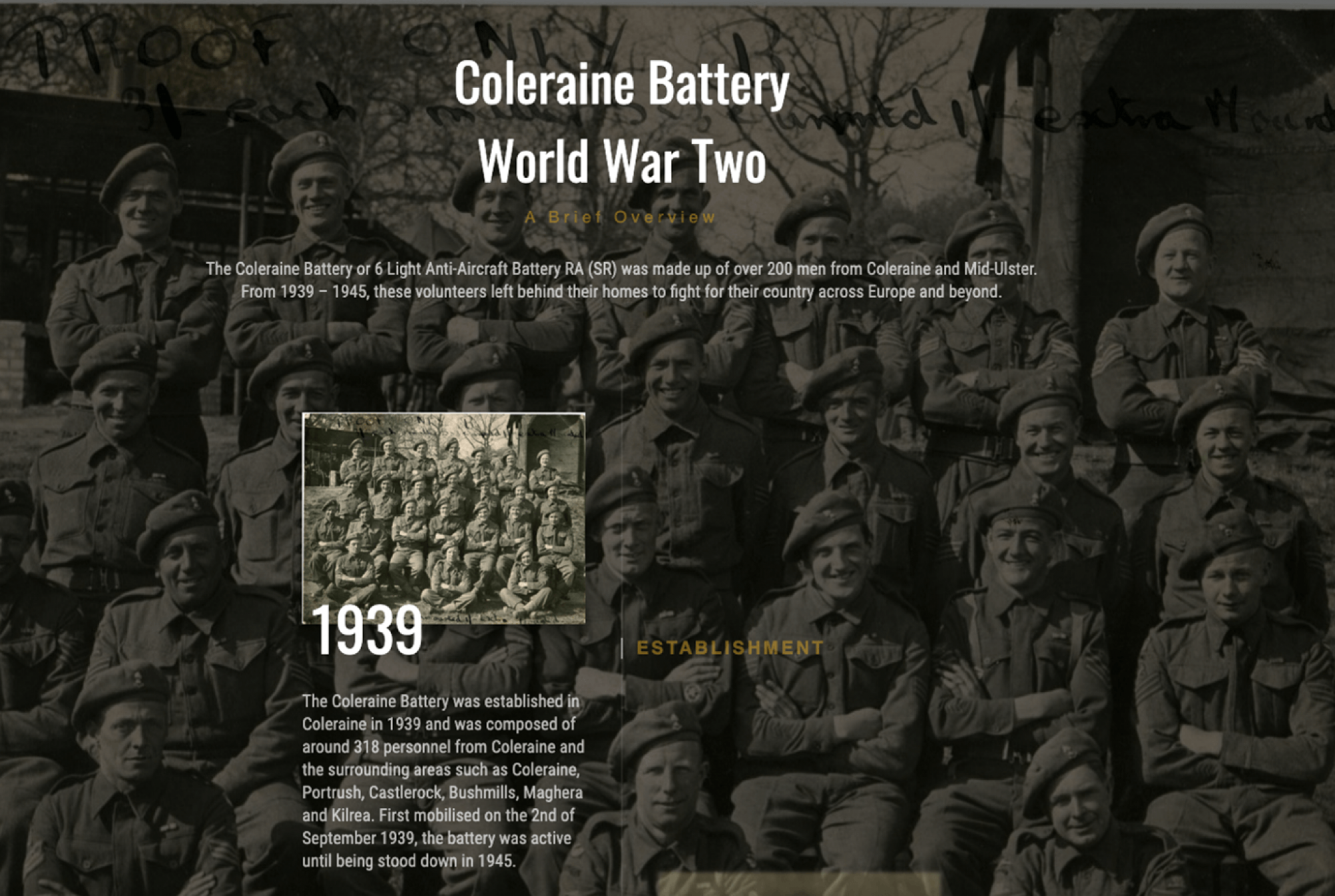This month saw the launch of the interactive documentaries created by Year 2 Interactive Media students from Ulster University’s Coleraine Campus.
Developed as part of this Covid-19 resilience museum project, the students worked with Museum Services at Causeway Coast and Glens Borough Council to develop a range of interactive experiences to support Council’s NI100 programme.
With access to 10 different museum archives, students repurposed these archival assets into an interactive online experience using an underlying documentary approach. These archives included the NW200, Sam Henry, Corfield Photography Factory, George Shiels, Peter Woodman and the dig at Mountsandel, WWII Coleraine Battery, Charlie McAfee and the Ballymoney Show.

Using a co-creation model of development, the wider project brought together students with skills in digital storytelling and curators in the heritage sector, to create a positional advantage for local organisations in the heritage sector who are grappling with the design and delivery of digital outcomes.
Within the sector, co-creation models of content creation are understood to lead to more engaging, individualised and memorable heritage visitor experiences. The co-creation methodology used in this project, had at its core, an ambition to add value to the museum experience, by bringing the visitor or user of the museum, into the process of developing digital assets for the museum. While the museum guided the project at an organisational level and ensured the authenticity of the storytelling devices, the students brought with them not only their skills in developing digital media outcomes, but also their personal thoughts, experiences, backgrounds and imagination into the heritage setting.
Interpretation of the archive assets held by the museum became subject to a storytelling method that deployed a range of voices and perspectives. Meaning making thus became a shared experience between the gatekeepers of heritage and those audiences that seek to access this heritage. Therefore, what is clear in the portfolios of outcomes, is the diversity in both storytelling and the seamlessness of the interactive experience.
The project also demonstrates the scalability of results in these co-creation methodologies. The scale and scope of what can be achieved in the commissioning of digital assets was enhanced by the participation of students working as co-collaborators with the museums sector, with a collection of 10 different interactive stories developed within the project.
Finally, this co-creation model created a dynamic and enhanced relationship between museums staff and students and enforced a sense of shared responsibility and ownership of the resource developed.

The interactive documentaries are hosted on the niarchive.org website.
Dr Helen Jackson is a Senior Lecturer in Interactive Media and researcher at Ulster University working on the UKRI-funded project ‘Museums, Crisis and Covid-19: Vitality and Vulnerabilities’. This multi-disciplinary project team, led by Professor Elizabeth Crooke, is investigating how the museum sector will emerge and refocus in the aftermath of the Covid-19 crisis.
